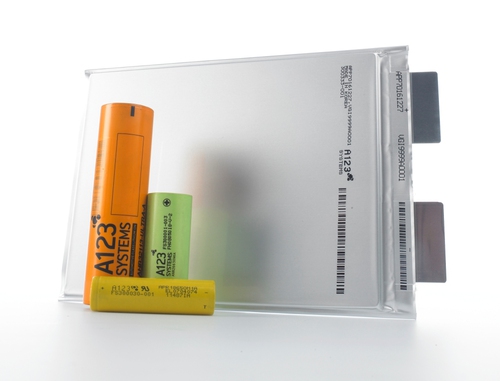Routinely some news makes the rounds touting some far off future battery technology as the savior of electric cars. The headline vaporously screams we’ll be driving cars powered by graphene, or lithium air, or compressed air, or something or other. There are several ways to think about this and the title of a posting on FuturePundit gelled for me a feeling that these articles are actually dangerous to adoption of electric vehicles today, right now.
That title read Forget Lithium Ion Batteries And Wait For Lithium Air Instead? ![]() The effect of such thinking is to forego electric vehicle adoption today, and wait for the perfect future battery technology.
The effect of such thinking is to forego electric vehicle adoption today, and wait for the perfect future battery technology.
Okaaaay… riiiiiight… There’s a phrase to teach you: “Perfect” is the enemy of the good.
In this case the current crop of lithium ion battery packs driving today’s electric cars are “good” but are seen to have flaws. Short driving range – long recharge time – high cost – capacity loss in hot or cold weather – that sort of thing.
News coverage of Lithium-Air batteries makes them sound like the perfect thing. They’ll enable the 500 mile range electric car and on and on. Or maybe it’s Graphene batteries that are the hot thing this week. At the time I saw the above posting, Sodium batteries were hot. Earlier today we wrote a post about how Toyota’s advanced battery research is focusing on Lithium Air or Solid State batteries.
Yes, there is lots of battery research going on. Yes, there will be a future breakthrough in battery technology that will make lithium ion batteries look like childs play.
Can we trust predictions of when a breakthrough will occur, and what that breakthrough will be? No.
Can we afford to wait for a future breakthrough? No. There are pressing challenges right now for which increased vehicle electrification is the solution. Those challenges need solutions right away and cannot wait for the perfect answer.
Does adopting lithium ion batteries prevent adoption of lithium air or whatnot in the future? No, so long as the future vehicles are electric. I believe that any electric anything vehicle would charge at existing charging stations. However a compressed air or fuel cell car would require a different kind of charging station.
It’s possible that the Oil Companies may be doing some subtle manipulation in this area. It serves oil company needs when fear-uncertainty-doubt is sowed over the capabilities of electric cars. It serves oil company needs when any meme causes people to delay buying an electrified car.
The danger is that – people on the fence might buy into the hype around lithium air or compressed air or whatever, hype that implies lithium ion based cars are about to be supplanted. With increased uncertainty in their mind they decide to WAIT rather than BUY.
Here’s an example:
Sodium-air battery shows potential![]() – If you only read the title you might think – sodium air batteries are just around the corner. But, the current state is each cell can only be used 8 times, there is no mass scale manufacturing process, and there’s a ton of work remaining to be done.
– If you only read the title you might think – sodium air batteries are just around the corner. But, the current state is each cell can only be used 8 times, there is no mass scale manufacturing process, and there’s a ton of work remaining to be done.
I’ve even penned my own contributions in covering statements from GM executives saying that GM is developing a 200 mile range electric car.
- Highway design could decrease death and injury risk, if “we” chose smarter designs - March 28, 2015
- GM really did trademark “range anxiety”, only later to abandon that mark - March 25, 2015
- US Government releases new regulations on hydraulic fracturing, that some call “toothless” - March 20, 2015
- Tesla Motors magic pill to solve range anxiety doesn’t quite instill range confidence - March 19, 2015
- Update on Galena IL oil train – 21 cars involved, which were the supposedly safer CP1232 design - March 7, 2015
- Another oil bomb train – why are they shipping crude oil by train? – Symptoms of fossil fuel addiction - March 6, 2015
- Chevron relinquishes fracking in Romania, as part of broader pull-out from Eastern European fracking operations - February 22, 2015
- Answer anti- electric car articles with truth and pride – truth outshines all distortions - February 19, 2015
- Apple taking big risk on developing a car? Please, Apple, don’t go there! - February 16, 2015
- Toyota, Nissan, Honda working on Japanese fuel cell infrastructure for Japanese government - February 12, 2015













